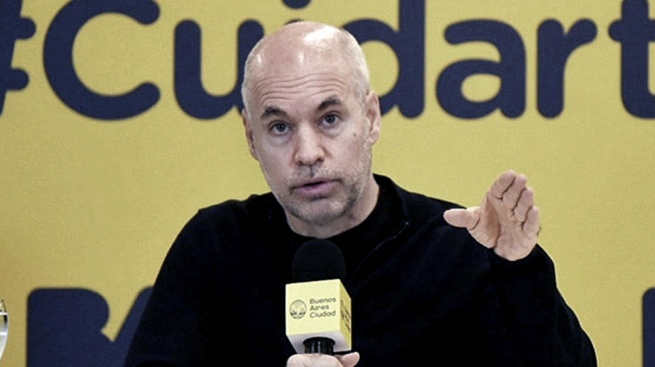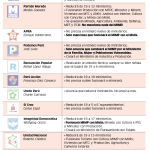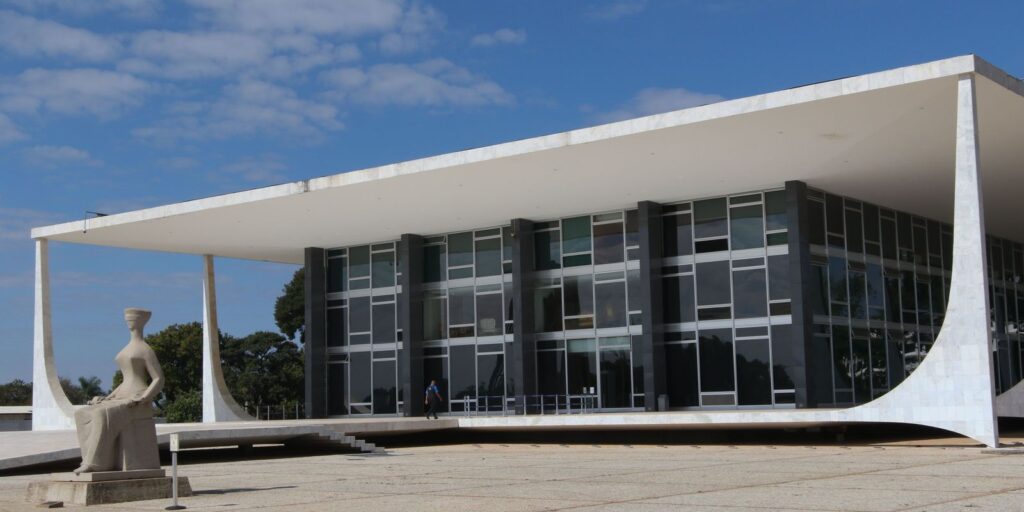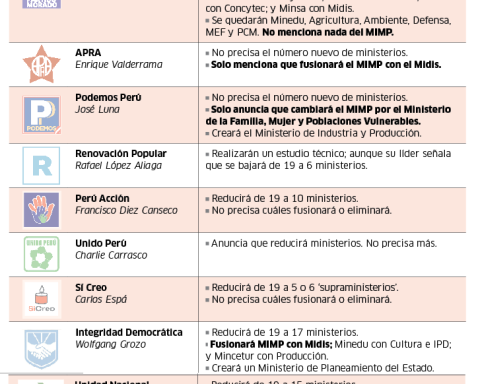Teachers, specialists and leaders from different sectors expressed themselves criticizing the decision to suppress the inclusive language raised by Horacio Rodriguez Larreta and his Minister of Education.
The Minister of Education of the Nation, Jaime Perczykassured that although “we must improve” educationit’s “it is not done by prohibiting” inclusive language, noting that the cause is deeper, given that “It’s about avoiding discrimination.” Thus, he referred to the measure adopted by the Buenos Aires educational portfolio to prohibit the use of “e”, “x” and “@” in the contents that teachers dictate in class, the material that is given to students and in official documents of educational establishments.
“We have to improve, but that is not done by prohibiting, improving is that there is no violence, that there are no femicides, that there is no inequality, or discrimination,” the minister told the C5N news channel.
“With great responsibility and at the request of the Ministry, we produced three excellent inclusive language manuals that go in another direction and express another position”Diana Maffia- director of the Observatory of Gender in Justice of the Council of the Judiciary of the City of Buenos Aires
Perczyk explained: “We intend to reaffirm the idea that the school teaches language and mathematics, teaches to integrate, to love and be loved, teaches content, the school demands, it is an institution that tries to improve us and we have to improve so that can learn language and mathematics better. In that idea, all scientific research indicates that social conditions are an important factor”
“In our country we have to improve, because we have 50 percent of poor kids and that is a very serious conditioning to learn and teach them”assured.

In addition, the minister pointed out that the educational conditions of mothers and fathers “are decisive when it comes to seeing educational results,” as well as “the days and hours of classes and teacher salaries.”
“We have a lot to improve, we have to achieve an egalitarian society, that all girls can go under the same conditions as men”Jaime Perczyk
“Argentina has 24 provinces and each one is focused on having more days and hours of classes, on having books in schools, but you have to think that if so many boys and girls use that language it reflects something else, a situation of injustice. , of machismo with Argentine girls and women, and that if they use it it is because they understand that it is a tool for that to change,” said the national official.
As an example, Perczyk recalled that the Franco regime prohibited “left-handedness”, which was written with the left handbecause “with that they thought they were correcting something and the causes are deeper, we have a lot to improve here, we have to achieve an egalitarian society, that all girls can go under the same conditions as boys”.
“We have to improve the economy and that all the boys, especially the most humble, can go in the same conditions, for that the unemployment rate was lowered, which is at 7 percent, but we have to improve wages. We have to improve, but that is not done by prohibiting, improving is that there is no violence, that there are no femicides,” he said after this Friday morning the head of the Buenos Aires Government, Horacio Rodríguez Larreta, and the Minister of Education, Soledad Acuña, affirmed that “You have to respect the rules of the Spanish language”.
It is our responsibility as a State that all the girls and all the boys are in school because that is where the future of Argentina begins. For that we work every day and articulate with the different actors of society.
— Jaime Perczyk (@jaimeperczyk) June 6, 2022
Also, the head of the educational portfolio said that “the year and eight months of non-attendance has affected many children, especially those with fewer resources, that is evident and in the week we will present some results, but we have to go to resolve the deepest causes of what inclusive language reveals, which is those who suffer from inequality in society”.
“As of April 7, a report indicated that we recovered eight out of 10 boys who had left school, and in the latest data I think we reached nine out of 10. What is clear is that we cannot lose any kid and that is a public policy that we set ourselves,” Perczyk concluded.
Diana Maffia: “Repeal this anachronistic measure now”
The director of the Observatory of Gender in Justice of the Council of the Judiciary of the City of Buenos Aires, Diana Maffia, also expressed herself against the decision of the Head of Government of Buenos Aires, who asked the local authorities to “repeal this anachronistic measure”.
Maffia thus alluded to Circular 4/2022 of the district Ministry of Education, which prohibited the use of inclusive language in written curricular content and official documents in establishments of all compulsory educational levels, both in the public and private systems.
“Repeal this anachronistic measure now,” Maffia demanded in a message addressed to the head of the Buenos Aires government, Horacio Rodríguez Larreta, and his chief of staff, Felipe Miguel, through Twitter.
The inclusive manuals commissioned by Acuña herself
The Ph.D. in Philosophy from the University of Buenos Aires (UBA) asked Acuña for explanations since, she said, at the request of that portfolio, inclusive language manuals were prepared. in turn, she provided a noteworthy piece of contradictory data.
“With great responsibility and at the request of the Ministry, we produced three excellent inclusive language manuals that go in another direction and express another position.” And he raised: “I need a clarification on this”.
“From now on, teachers have to respect the rules of the Spanish language, both when they are in front of the classroom and when they communicate with the children and their families,” Rodríguez Larreta had said this Friday morning.

Sileoni: “The school must teach diversity”
The General Director of Culture and Education of Buenos Aires, Alberto Sileoni, considered that “the school must teach diversity” and said that “behind the inclusive language is the awareness that there is someone else who deserves a place”, differentiating himself from the Government’s decision Buenos Aires
“I was Minister of Education of the Nation for several years and I gave my opinion of other jurisdictions because it was my competence. Today it is no longer my competence, we are dedicated to the 5,200,000 students, to the 3rd and 6th year tests, to a complexity that has the province of Buenos Aires with the threat of cold,” said Sileoni.
I need clarification on this @Soledad_Acunia. With great responsibility and at the request of the Ministry, we produced three excellent inclusive language manuals that go in another direction and express another position @FelipeMiguel @horaciorlarreta Repeal that anachronistic measure https://t.co/kq9DNrHKY4
– Diana Maffia (@dianamaffia) June 10, 2022
And, he added that “the word prohibit does not sound good.” “In another sense, I say that the school must teach diversity because behind the inclusive language is the awareness that there is someone else who deserves a place,” she said in statements to Radio Provincia.
Along these lines, he added: “The language is political and I end by saying that sometimes the prohibitions reinforce more than they prevent, all this is part of the complexity of this issue.”


















